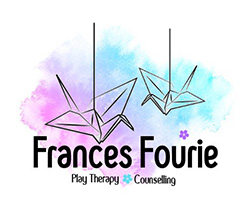Play is the universal language of children. It is through play that they explore, express, and experience their world. As parents, it can be challenging to fully understand what is happening beneath the surface of our child’s play. That’s where play therapy, specifically the non-directive approach, comes in. In this article, we will delve into the remarkable world of play therapy and shed light on how it can benefit your child’s emotional well-being. Let’s explore the reasons why play therapy is an effective therapeutic tool and how it can help your child heal and grow.
The Language of Play
Children communicate their inner world through play. Sometimes, they may struggle to express their thoughts and emotions verbally. Play therapy provides a safe and nurturing environment where trained therapists can meet children in their world of play. By speaking their language, therapists can gain valuable insights into what is happening for the child, facilitating a deeper understanding of their experiences.
Metaphorical Expression
Children often act out their concerns and worries metaphorically in their play. Skilled play therapists are trained to identify these metaphors and understand their significance. Through carefully facilitated experiences in the playroom, therapists help children naturally resolve their inner conflicts and challenges, leading to healing and growth.
Research-Backed Effectiveness
Extensive research has demonstrated the efficacy of play therapy as a powerful therapeutic approach for children. Studies have consistently shown that play therapy creates a strong therapeutic bond and provides children with a means to heal and develop emotionally. By engaging in purposeful play, children gain valuable coping skills, emotional regulation abilities, and enhanced resilience.
Stress Relief and Emotional Regulation
Play serves as a natural stress reliever for children. Engaging in play allows them to release built-up tension and process challenging experiences. Through play therapy, children learn to regulate their emotions and find healthy ways to cope with stressors. This newfound emotional regulation can have a positive impact on their overall well-being and daily functioning.
Building Bonds and Connection
Play provides a powerful avenue for children to bond and connect with others, including their play therapist. Within the therapeutic relationship, children experience a sense of safety and trust, allowing them to express themselves freely. Through this connection, children develop social skills, improve their communication abilities, and build healthier relationships with peers and adults.
Conclusion
Understanding the fundamental role of play therapy, particularly the non-directive approach, can empower parents in supporting their child’s emotional growth. Play therapy serves as a bridge between children’s inner world and the outside world, facilitating healing, resilience, and positive development. By embracing play as a therapeutic tool, parents can unlock the incredible potential within their child and provide them with the support they need to thrive.
Play is the foundation of learning, creativity, self-expression, and constructive problem-solving. It’s how children wrestle with life to make it meaningful. ”
Susan Linn
Remember, if you believe your child could benefit from play therapy, seeking guidance from a trained and experienced play therapist can make a significant difference in their journey toward emotional well-being.

